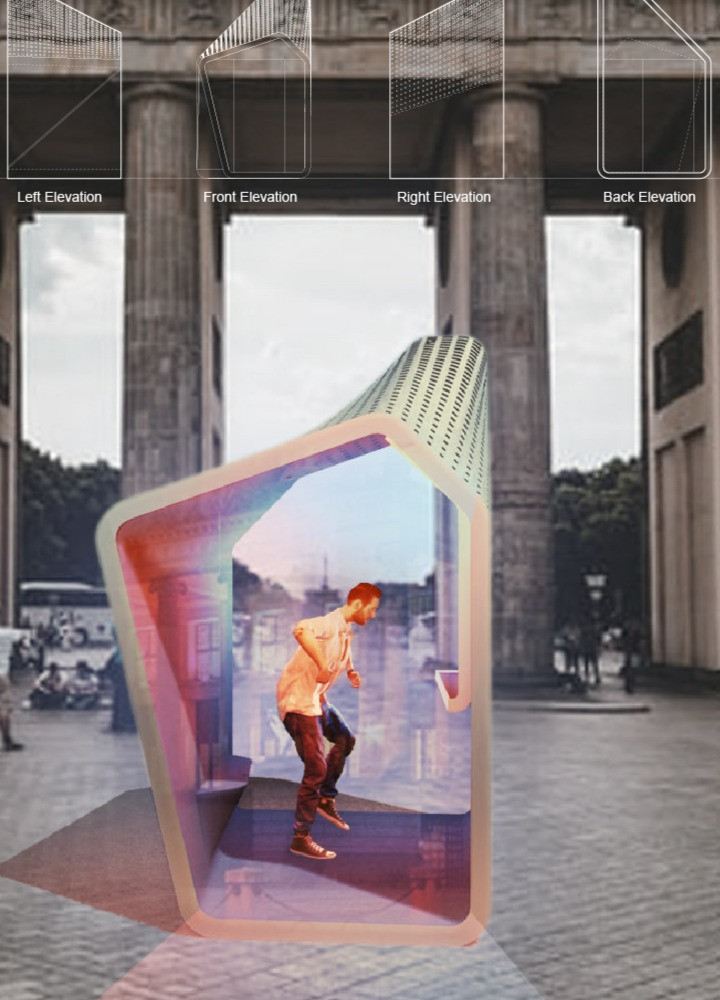5 key facts about this project
The Techno Frame project offers a thoughtful design solution for the nightlife scene in Berlin, especially in light of recent changes brought on by the pandemic. It creates a dedicated space where individuals can express themselves through dance while connecting with the urban landscape. This structure encourages interaction with music and the city, aiming to enhance personal experiences within a lively environment.
Design Concept
The design focuses on creating an immersive experience that links users to music and the vibrancy of the city. The Techno Frame serves as a visual portal, framing views of Berlin while allowing strong sensory connections to the bustling environment. The distorted frame enhances visual interest and promotes interactions between users inside the booth and the public outside.
Spatial Configuration
Within the booth, there is ample space for a single user to move freely and engage with music. The interior layout prioritizes personal expression, enabling users to connect their mobile devices for an individualized audio experience. A seating area provides more options for enjoyment, allowing users to take a break or simply listen to music in comfort.
Sustainability Features
Sustainability is central to the design ethos. Solar panels are placed on the roof, supplying energy and addressing contemporary environmental issues. The structure can also connect to an electrical grid, allowing flexibility and adaptability to different urban settings. This dual approach to energy sourcing reflects a commitment to responsible design.
Material Choices
The materials chosen for the Techno Frame contribute to its overall strength and modern look. Vertical frames made of aluminum connect with metal rods, providing necessary support while keeping the structure lightweight. The exterior features stainless steel, offering durability and ease of upkeep in a public area. This choice of materials aligns with the goal of creating a space that is both functional and visually appealing.
The way light plays across the stainless steel surface creates a dynamic relationship with the surrounding environment, drawing attention to the structure while inviting engagement from both users and onlookers.




















































